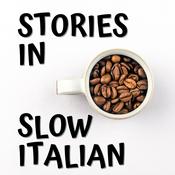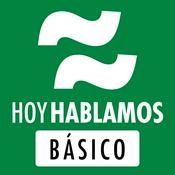Speak English Now Podcast: Learn English | Speak English without grammar.
Georgiana, founder of SpeakEnglishPodcast.com

Último episódio
379 episódios
- Today we're going to talk about Valentine's Day.
But don't worry — this is not going to be a boring episode about chocolates, roses, and red hearts everywhere.
Let me ask you something.
Is Valentine's Day really about love?
Or is it about pressure?
Pressure to buy a gift. Pressure to be romantic. Pressure to post something on Instagram. Pressure to prove that your relationship is perfect.
Get the transcript on my website: https://speakenglishpodcast.com/372-is-valentines-day-really-about-love - In the previous episode, we talked about how dogs understand our emotions and how they communicate without words.
Today, I want to continue that conversation, but from a different angle.
Instead of focusing on emotions, we're going to look at how dogs experience the world, how they gather information, and why they naturally look to humans for guidance.
Because dogs don't just feel with us. They observe, analyze, and cooperate with us in ways that are easy to overlook.
Get the transcript on my website: https://speakenglishpodcast.com/371-dogs-and-their-superpower - Today, I want to talk about dogs again.
If you've been listening to the podcast for a while, you already know this isn't the first time I've brought up dogs.
Dogs are one of those topics we can come back to again and again, because each time we look at them from a different angle, we discover something new.
Get the transcript here: https://speakenglishpodcast.com/370-how-dogs-communicate-emotions/ - Welcome back! This is the final episode in our 4-part series about going to the doctor.
So far, we learned how to make an appointment, how to check in at the clinic, and how to answer the nurse's questions. In this lesson, we will focus on the conversation with the doctor.
This part can feel intimidating, but with a few simple expressions and some practice, you'll feel much more confident.
Get the transcript on my website: https://speakenglishpodcast.com/podcast/ - Welcome back! This is the third episode in our 4-part series about going to the doctor.
So far, we practiced how to make an appointment and how to check in at the clinic. Today, we'll continue with the next step: talking with the nurse.
Usually, before you see the doctor, a nurse will ask you a few questions about your health. The nurse may also take your temperature, check your blood pressure, and write notes for the doctor.
Get the transcript on my website: https://speakenglishpodcast.com/368-going-to-the-doctor-3
Mais podcasts de Ensino
Podcasts em tendência em Ensino
Sobre Speak English Now Podcast: Learn English | Speak English without grammar.
The Speak English Now Podcast is your resource for practicing your English speaking and listening. You will learn English with the Question and Answer (TPRS) and Point of View techniques. You won't need any grammar nor boring exercises. You will also learn about the English culture and the language itself. Finally, you will get valuable advice on learning English. All the audio is in English and you can get the text at SpeakEnglishPodcast.com
Site de podcastOuça Speak English Now Podcast: Learn English | Speak English without grammar., Histórias em Inglês com Duolingo e muitos outros podcasts de todo o mundo com o aplicativo o radio.net

Obtenha o aplicativo gratuito radio.net
- Guardar rádios e podcasts favoritos
- Transmissão via Wi-Fi ou Bluetooth
- Carplay & Android Audo compatìvel
- E ainda mais funções
Obtenha o aplicativo gratuito radio.net
- Guardar rádios e podcasts favoritos
- Transmissão via Wi-Fi ou Bluetooth
- Carplay & Android Audo compatìvel
- E ainda mais funções


Speak English Now Podcast: Learn English | Speak English without grammar.
Leia o código,
baixe o aplicativo,
ouça.
baixe o aplicativo,
ouça.






































